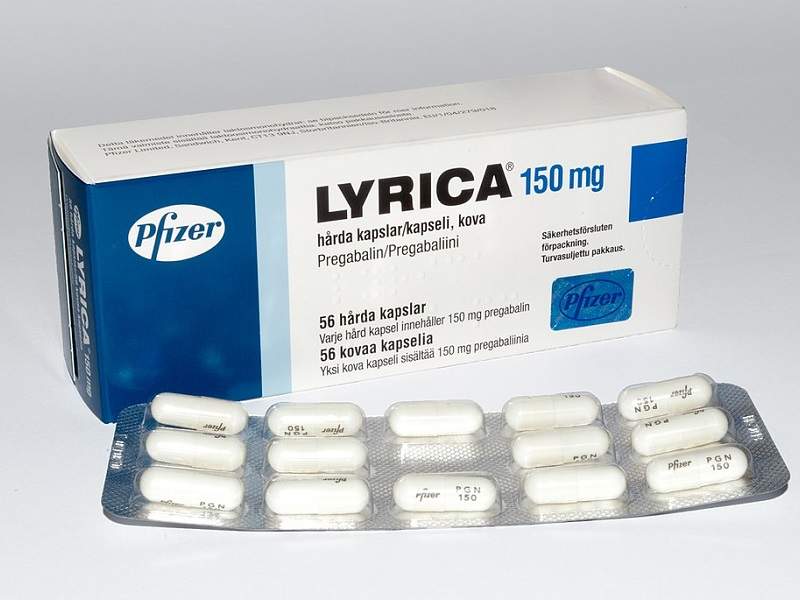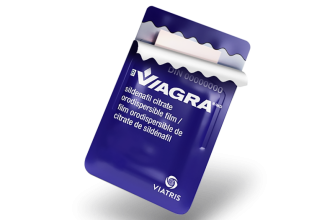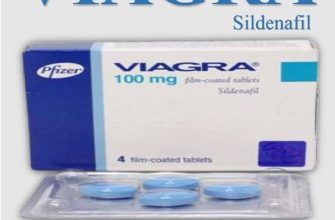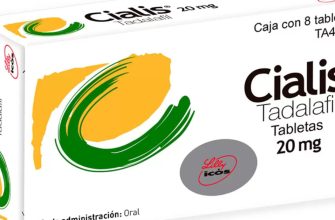Lyrica, the brand name for pregabalin, is available in a generic form known as pregabalin. This means that patients can access more affordable options without compromising on quality. The generic version has become increasingly popular due to its effectiveness in managing conditions such as neuropathic pain, fibromyalgia, and certain types of seizures.
Generic pregabalin offers the same active ingredients, dosage forms, and effects as its brand-name counterpart. When considering switching to a generic version, consult your healthcare provider to ensure it suits your specific needs. This transition can lead to significant cost savings while still providing effective relief.
As with any medication, it’s essential to follow your doctor’s guidance on dosage and usage. Be aware that different manufacturers may have slight variations in inactive ingredients, which could impact your experience. Always monitor how you feel after switching and report any concerns to your healthcare professional.
- Is Lyrica Available in Generic Form?
- Understanding Lyrica: What Is It Used For?
- Common Conditions Treated with Lyrica
- Dosage and Administration
- What Is a Generic Drug?
- Current Status of Lyrica’s Generic Availability
- Access and Pricing
- Effectiveness of Generic Pregabalin
- Benefits of Choosing Generic Medications
- Quality Assurance
- Access to Treatment
- Comparing Brand-Name Lyrica and Its Generic Alternatives
- Potential Cost Savings from Generic Lyrica
- Regulatory Approvals and Market Impact on Generic Lyrica
- FDA Approval Timeline
- Market Impact
- Safety and Efficacy of Generic Lyrica: What to Know
- Clinical Comparisons
- Potential Side Effects
- How to Obtain Generic Lyrica: A Step-by-Step Guide
Is Lyrica Available in Generic Form?
Yes, Lyrica is available in a generic form known as pregabalin. This medication is commonly prescribed to treat conditions such as neuropathic pain, fibromyalgia, and certain types of seizures.
Choosing the generic version can provide cost savings while maintaining the same effectiveness as the branded version. Here are some key details about generic pregabalin:
- Approval: The generic form received FDA approval after the patent for Lyrica expired in 2019.
- Cost: Pregabalin is often more affordable than Lyrica, making it accessible for more patients.
- Dosing: Pregabalin is available in various strengths, similar to Lyrica, allowing for personalized treatment options.
- Availability: Most pharmacies carry pregabalin, ensuring ease of access for those in need.
Consulting with a healthcare provider can help determine if the generic form is suitable for your treatment plan. Discuss any concerns or preferences to make an informed decision about your medication options.
Understanding Lyrica: What Is It Used For?
Lyrica, containing the active ingredient pregabalin, is prescribed primarily for neuropathic pain, fibromyalgia, and certain types of seizures. It works by modulating neurotransmitter release, which helps to reduce pain signals in the brain.
In individuals with diabetic neuropathy or postherpetic neuralgia, Lyrica provides significant pain relief and improves quality of life. For those diagnosed with fibromyalgia, Lyrica aids in managing widespread muscle pain and enhances sleep quality. Additionally, it serves as an adjunctive treatment for adults experiencing partial-onset seizures.
Common Conditions Treated with Lyrica
| Condition | How Lyrica Helps |
|---|---|
| Neuropathic Pain | Reduces pain from nerve damage, like in diabetes. |
| Fibromyalgia | Alleviates widespread pain and improves sleep. |
| Partial-Onset Seizures | Works alongside other medications to control seizures. |
Dosage and Administration
Doctors typically start patients on a low dose to minimize side effects, gradually increasing as needed. It’s crucial to follow the prescribed regimen, as sudden discontinuation may lead to withdrawal symptoms. Regular follow-ups with a healthcare provider ensure optimal dosing and management of any potential side effects.
What Is a Generic Drug?
A generic drug is a medication that has the same active ingredients, dosage form, strength, and intended use as its brand-name counterpart. These drugs become available once the patent on the original brand product expires, allowing other manufacturers to produce and sell them. Generic drugs provide the same therapeutic benefits as the brand-name medication, ensuring that patients receive effective treatment at a lower cost.
In many cases, generic drugs are marketed under their chemical name rather than a brand name. The FDA requires that generic medications meet the same rigorous standards for quality, safety, and efficacy as their brand-name versions. This means that when you choose a generic drug, you can be confident in its reliability and performance.
The cost savings associated with generic drugs can be significant. Prices are generally lower because manufacturers do not incur the same expenses related to research and marketing as the original developers. These savings can be passed on to consumers, making medications more accessible.
It’s essential to consult with healthcare providers when considering a switch from a brand-name drug to its generic equivalent. They can provide guidance specific to individual health needs and ensure that the generic option is appropriate for your treatment plan.
Overall, generic drugs play a crucial role in the healthcare system, offering patients more affordable options while maintaining the same level of care. Understanding the benefits of these medications can help in making informed decisions about treatment options.
Current Status of Lyrica’s Generic Availability
Lyrica is available in generic form, known as pregabalin. The generic version has been accessible since December 2019 in the United States, following the expiration of Lyrica’s patent. This development allows patients to obtain a more affordable option while ensuring they receive the same therapeutic benefits as the branded medication.
Access and Pricing
Many pharmacies stock generic pregabalin, making it widely available. Patients can expect to see significant cost savings compared to the brand-name version. Often, insurance plans cover the generic option, further reducing out-of-pocket expenses. It’s advisable to check with local pharmacies for specific pricing, as costs can vary based on location and insurance coverage.
Effectiveness of Generic Pregabalin
Generic pregabalin matches Lyrica in dosage and formulation, providing equivalent efficacy for conditions such as neuropathic pain and fibromyalgia. Regulatory authorities ensure that generics maintain stringent standards for quality and performance. Consulting with a healthcare provider can clarify any concerns about transitioning from the brand-name drug to its generic counterpart.
Benefits of Choosing Generic Medications
Opting for generic medications can lead to significant savings. Generic drugs typically cost 20% to 80% less than their brand-name counterparts. This price difference can make a substantial impact on monthly healthcare expenses.
Quality Assurance
Generics undergo rigorous testing and must meet the same quality standards set by regulatory agencies as brand-name drugs. Consumers can trust that generics deliver the same therapeutic effects as their branded equivalents.
Access to Treatment
- Wider Availability: A broader selection of medications means more options for patients.
- Customized Care: Increased accessibility allows healthcare providers to tailor treatments effectively.
- Long-Term Medication: For chronic conditions, generics ensure affordable continuity of care over time.
By choosing generics, individuals not only pay less but also gain access to essential medications while ensuring care remains consistent and reliable.
Comparing Brand-Name Lyrica and Its Generic Alternatives
Brand-name Lyrica, known for treating neuropathic pain and certain types of seizures, is typically more expensive than its generic counterparts. However, various generic versions exist that contain the same active ingredient, pregabalin, ensuring similar therapeutic effects.
- Price: Generic pregabalin is often available at a lower cost than brand-name Lyrica. Patients seeking more affordable options may benefit from these generics.
- Availability: Most pharmacies stock generic versions of pregabalin, making access easier for patients compared to brand-name Lyrica, which may not always be in stock.
- Quality: Both brand-name and generic forms undergo rigorous testing by regulatory bodies to ensure quality and safety. Generic medications provide an equivalent treatment option when adhering to manufacturing standards.
- Insurance Coverage: Many insurance plans favor generic medications, covering a larger portion of the cost. This can significantly reduce out-of-pocket expenses for patients.
- Formulations: While both formulations provide the same active ingredient, inactive components may vary, potentially affecting tolerability for some individuals.
Consulting with a healthcare provider can help determine whether to choose brand-name Lyrica or a generic alternative based on individual health needs and financial considerations. Always consider discussing potential side effects and what to watch for when switching formulations.
Potential Cost Savings from Generic Lyrica
Switching to generic Lyrica can significantly reduce your medication expenses. Studies show that the generic version is often priced 30-80% lower than its brand-name counterpart. This price difference offers substantial savings, especially for those requiring long-term treatment.
Many insurance plans provide better coverage for generics, often resulting in lower copays. Patients can save money not only on initial prescriptions but also on refills throughout their treatment. It’s wise to consult with your healthcare provider about prescribing the generic version if available.
Pharmacies may also have varying prices for generic Lyrica. Comparing costs at different pharmacies can lead to additional savings. Utilizing discount cards or programs offered by pharmacies can further reduce prices, giving you more options to manage your healthcare budget effectively.
For those without insurance, seeking patient assistance programs from pharmaceutical companies can be beneficial. These programs sometimes offer the medication at a reduced or no cost, making essential treatments more accessible.
Finally, always discuss any changes to your medication with your healthcare provider to ensure that a transition to generic Lyrica will meet your health needs while maximizing your savings.
Regulatory Approvals and Market Impact on Generic Lyrica
Generic Lyrica, known as pregabalin, has gained significant traction following regulatory approvals by several health authorities. The U.S. Food and Drug Administration (FDA) and the European Medicines Agency (EMA) have both granted approvals for generic formulations, facilitating wider access for patients seeking treatment for neuropathic pain, fibromyalgia, and epilepsy.
FDA Approval Timeline
The FDA issued its first approval for generic versions of Lyrica in 2019. This decision followed the expiration of the original patent, allowing multiple manufacturers to produce and market pregabalin. The generic market quickly became competitive, with various companies introducing their products, thus lowering prices and enhancing availability across pharmacies.
Market Impact
Availability of generic pregabalin has led to noticeable changes in the pharmaceutical market. Patients now have affordable options, significantly reducing out-of-pocket costs. According to recent data, generic Lyrica can be priced approximately 30% to 80% lower than the brand-name version. This cost reduction has prompted a shift in prescribing practices, with healthcare providers increasingly opting for generics.
The introduction of generics also stimulates market competition, encouraging innovation among pharmaceutical companies. Increased competition often drives research into new formulations or alternative treatments for neuropathic pain and other related conditions. Thus, regulatory approvals not only affect drug accessibility but also influence broader market dynamics.
Safety and Efficacy of Generic Lyrica: What to Know
Generic Lyrica, known as pregabalin, provides a reliable alternative to the brand-name version. Studies indicate that it maintains the same safety profile and therapeutic effects, allowing for effective management of conditions like neuropathic pain and epilepsy.
Clinical Comparisons
Research shows that generic pregabalin mirrors the originator in both pharmacokinetics and pharmacodynamics. This equivalence translates to comparable onset times and peak plasma levels, ensuring that patients experience similar symptom relief. Regulatory agencies, including the FDA, have stringent requirements for manufacturing and testing generics, affirming their reliability.
Potential Side Effects
While generic Lyrica offers many benefits, side effects can occur, ranging from dizziness to fatigue. These side effects do not differ significantly from those associated with the brand-name version. Monitoring for adverse effects is advisable, especially after the transition to a generic formulation.
| Aspect | Brand Lyrica | Generic Pregabalin |
|---|---|---|
| Active Ingredient | Pregabalin | Pregabalin |
| Indications | Neuropathic Pain, Epilepsy | Neuropathic Pain, Epilepsy |
| Side Effects | Dizziness, Fatigue | Dizziness, Fatigue |
| FDA Approval | Yes | Yes |
Transitioning to generic Lyrica can be beneficial for many patients seeking cost-effective options. Regular consultations with healthcare providers ensure optimal management of treatment plans while monitoring for any potential side effects.
How to Obtain Generic Lyrica: A Step-by-Step Guide
Consult your healthcare provider to discuss your symptoms and the possibility of switching to generic Lyrica. Bring up any concerns about cost or accessibility during your appointment.
Ask for a prescription specifically for the generic version, which is usually called pregabalin. Ensure your doctor is aware that you prefer the generic form to avoid any mix-ups.
Contact your pharmacy to confirm they have the generic version of Lyrica in stock. Inquire about the price and whether specific insurance plans cover it. Compare prices at different pharmacies if needed.
If your insurance does not cover the generic option or the cost remains high, explore prescription discount programs or patient assistance programs. Many pharmaceutical companies offer discounts or options for those who qualify.
Once you have the prescription and understand your options, proceed to fill it at your chosen pharmacy. Double-check that you receive pregabalin instead of the brand-name drug.
Monitor your experience with the generic Lyrica. Report any side effects or concerns to your healthcare provider, as they can adjust your treatment if necessary. Regular follow-ups will ensure you are receiving the best care.










